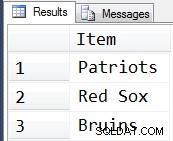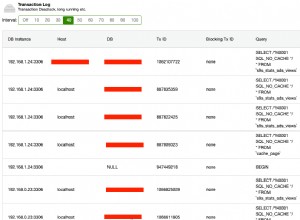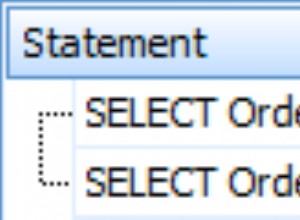क्योंकि c* अंतिम लेखन जीत है, आप बस प्रत्येक पंक्ति के नवीनतम संस्करण रख सकते हैं।
जैसा कि एमएसडी सुझाव देता है, आप writetime . का उपयोग कर सकते हैं लिखने के समय को खींचने के लिए। लेकिन सावधान रहें क्योंकि यह कॉलम विशिष्ट है और आप अपने प्राथमिक कुंजी कॉलम पर लिखने के समय का उपयोग नहीं कर सकते हैं। उदाहरण के लिए तालिका में इस प्रकार है:
cqlsh> create TABLE test.test ( a int, b int, c int, d int, primary key (a))
... ;
cqlsh> insert INTO test.test (a, b, c, d) VALUES ( 1,2,3,4)
... ;
cqlsh> select * from test.test
... ;
a | b | c | d
---+------+---+------
1 | 2 | 3 | 4
(2 rows)
cqlsh> insert into test.test (a,c) values (1, 6);
cqlsh> select * from test.test ;
a | b | c | d
---+------+---+------
1 | 2 | 6 | 4
(2 rows)
cqlsh> select writetime(a), writetime(b), writetime(c), writetime(d) from test.test
... ;
InvalidRequest: code=2200 [Invalid query] message="Cannot use selection function writeTime on PRIMARY KEY part a"
cqlsh> select writetime(b), writetime(c), writetime(d) from test.test ;
writetime(b) | writetime(c) | writetime(d)
------------------+------------------+------------------
1434424690700887 | 1434424690700887 | 1434424702420929
अन्यथा आप टाइमस्टैम्प के साथ एक cql कॉलम जोड़ सकते हैं:
create TABLE test.test ( a int, b int, c int, d int, touched_at timeuuid, primary key (a)) ;
कुछ त्वरित बेंचमार्किंग आपको यह निर्धारित करने में मदद करेगी कि कौन अधिक प्रदर्शनकारी है।




